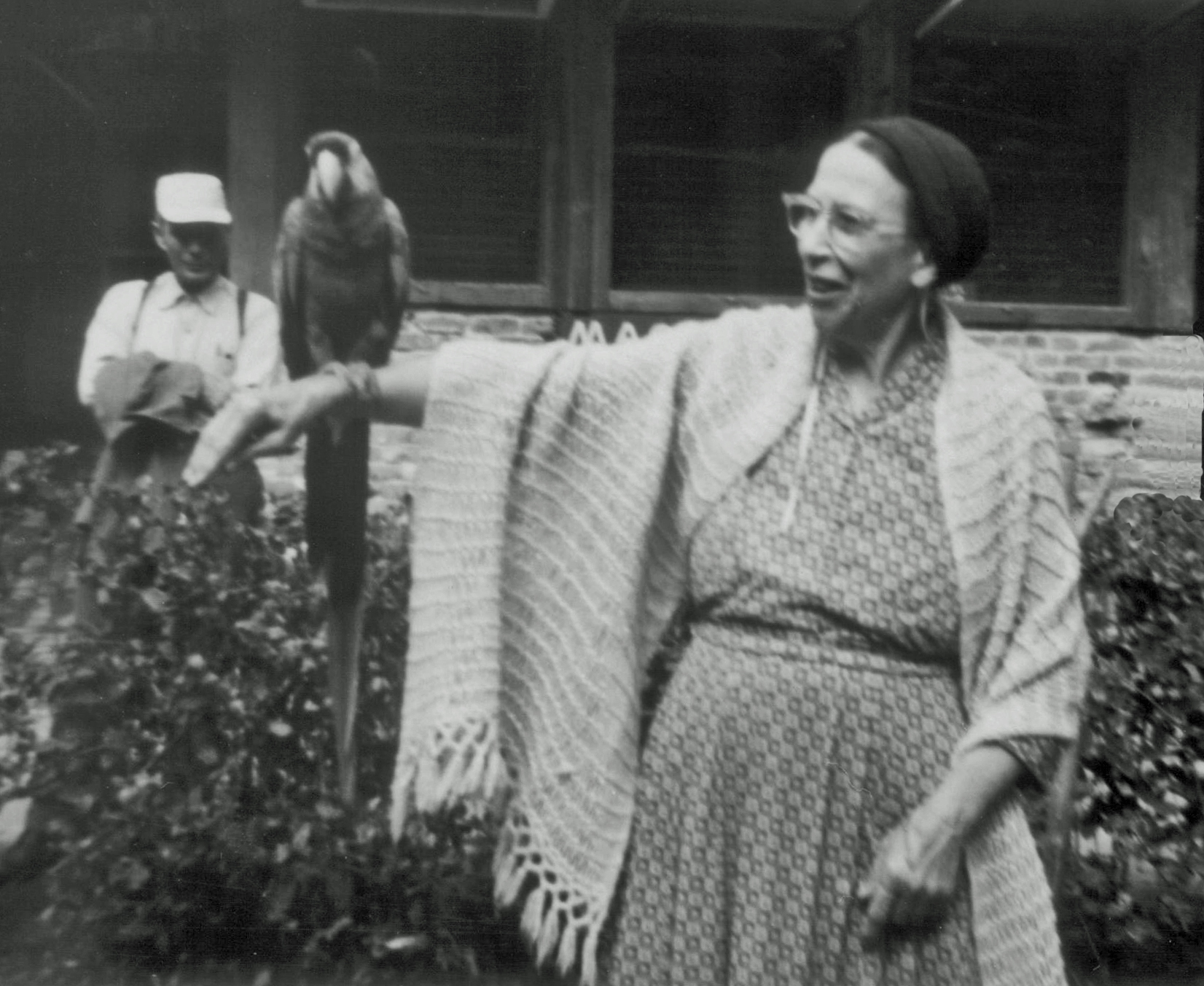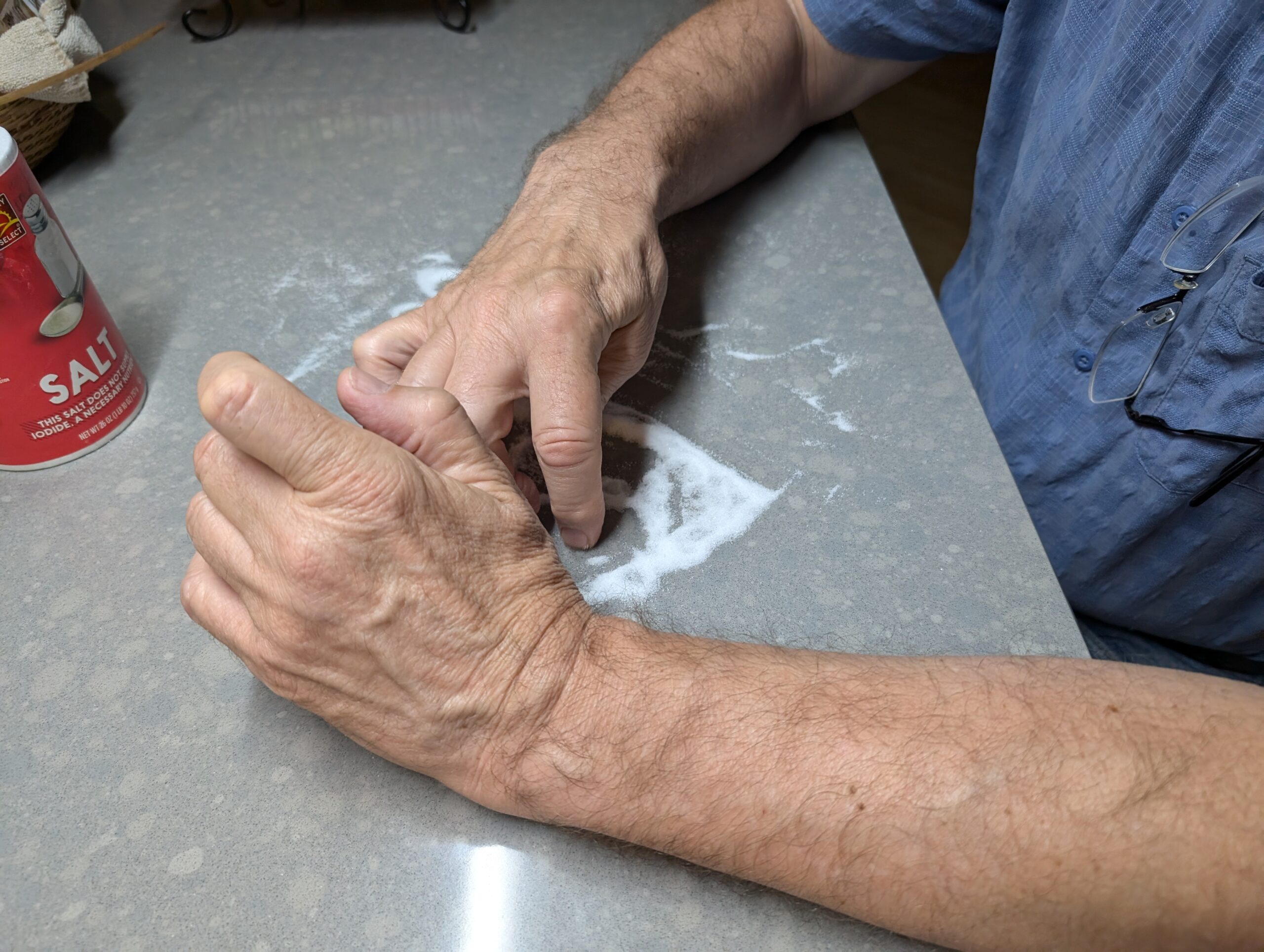50 Give or Take, May 9, 2025 A pastor and social activist for his lifetime,…

“Coca-Cola, Hippies, and Two (Ex)-Amish Women”
Prometheus Dreaming, May 2019
“Coke,” Aunt Sue declared in her gravelly voice, “will eat through nails.” She paused long enough to determine that I was listening before she continued. As usual, her hands flailed wildly in front of her, each gesture an emphatic exclamation mark to punctuate her stronghold on truth. “What do you think it will do to your stomach,” she thundered. “God did not intend us to put such filth into our bodies.” Here she paused again to catch her breath in order to fire off her final salvo. “Our bodies. Are the temple. Of the Lord.”
I was twelve the year my great aunt and my grandmother stumbled upon their anti-coke crusade. One of them had read somewhere that someone had put a nail into a glass of coke and the nail had disappeared completely, leaving not so much as a few lingering shavings to show that the nail had once existed in all its “nail-ness.”
Sometimes their diatribe came as a duet, both women gesticulating and declaring their newfound knowledge; this time, it was just Aunt Sue and I was her lonely little audience of one. Perhaps we were in the grocery store and I had asked to buy a drink to stave off the oppressive Iowa summer heat. Maybe we were at home and it just came up in ordinary conversation. Wherever it was, what I remember most was facing Aunt Sue and trying to understand her vehemence. She must have determined that I was more malleable than some of her other descendants, that she could shape me or at least shape my choice of beverage. Was it the coke that mattered or was it the principle of the thing? And if the later, what was the principle of the thing?
Sue was my grandmother Rachel’s sister. They were Bishop Mast’s daughters, the only offspring of his fourth wife, and the two youngest of his fifteen children. Most of the Bishop’s other children, products of wives one through three, were much older than the two youngest daughters, Rachel and Susan, who survived the rigors of a late nineteenth-century childbirth. By their self-description, they were a bit spoiled. Perhaps the Bishop was too old to discipline his youngest two daughters, while Elizabeth, their mother, harbored some reservations or irritations about her role as step-mother to the Bishop’s older children by those three other wives, some of whom were nearly her own age. Elizabeth must have been exhausted running a home that was more the Bishop’s than it was her own with precious little time to devote to her two young daughters.
They were an Amish family and not Mormon, as the four wives might suggest. The wives were consecutive rather than concurrent. Each wife had died in childbirth after having birthed too many children. I guess the good Bishop could not bear the thought of raising all those children alone, or he just could not bear the thought of being without a companion. Or it might have been that he possessed an over-abundance of testosterone and a rip-roaring sexual appetite. I’ll never know.
When I was a child, Grandma and her sister scared the bejesus out of me. Their forceful voices, their intense opinions, their conviction that they were obligated (a command from God) to save their loved ones from the torments of an eternity in hell. They possessed no round edges, only sharp jutting bones, both literally and figuratively. In her sole attempt at warmth or affection, Grandma planted sloppy wet kisses on my cheek whenever she saw me, kisses begging to be wiped off my face as soon as she looked the other way. I never doubted her love, nor the love from her sister Sue.
These two women were full of vim and vigor, coupled with an intense conviction that the world was going to hell in a handbasket. They were waiting for Jesus to come again and quick to share this with anyone who listened. They spoke their truth loudly, getting even louder when they decided that someone was not listening with the appropriate dose of attention. They carved out their own little corner of reality where they dealt with twentieth-century culture in what may have been the only way two ex-Amish woman with an excess of spunkiness could.
When they left the Amish church as adults, Grandma and Aunt Sue adapted their Amish ways to their new life as ex-Amish women. They sorted through their beliefs (not particularly self-consciously) and extracted the pieces that they appreciated, winnowing out the chaff (women’s roles being part of that), and blended it all with their own desires. Into this mix, they tossed a peculiarly Protestant American millennial vision that emanated from a few wayward Mennonite ministers who came through town to hold revival meetings. Upon leaving the Amish, they bought radios and soon discovered the disjointed theology of orators of the airwaves. They came up with a worldview and a theology that was a bit disjointed, but it suited them to a tee.
As a child, they told me stories about their younger years and I loved every story they told. The ones that really got my attention were the moments in which these two women allowed nothing and no one, neither church nor preacher nor even their dearly beloved and highly regarded father-the-Bishop, to dictate their choices for them. Grandma was proud to tell me that by the time my father (her oldest son) was seven, she had taught him how to bake pies and cakes to feed the threshers so that she could go out and drive the team around the field. That was her love and her desire; neither wild horses nor the threat of hell could have imprisoned her in the house. When they left the Amish church and were able to buy tractors she made equally certain that she drove that truck to town with all those loads of wheat. Grandma and Aunt Sue were born in the nineteenth century, lived when many women’s rights were almost unthinkable, dwelled among the quietest people in the land, and adhered to a theology which dictated that women were to be submissive to men in all things. Yet they never felt particularly compelled to abide by the rules of any time, place, or group. They didn’t exactly break out of those roles either, but they never allowed themselves to be forced into submission or to suppress their own deepest desires.
What one sister embraced, the other one joined in. They loved their husbands, but they found their greatest strength in each other. They followed a pattern of extreme frugality long before society rekindled an interest in back-to-basics living and before the era of recycling to save the planet. They were health-conscious before it was in vogue. They had a natural remedy for every ailment and carried with them small suitcases full of vitamins wherever they traveled. They consumed cloves of garlic to boost their immune systems. A hug from them during flu season was akin to making a foray into vampire-fighting territory.
Both sisters conducted their own mini-crusades on healthy living and what to eat, on how to dress in a biblical manner, and on the correct way to follow Jesus or what actions qualified as sin. Their definition of sin changed from time to time, reflecting new fads and fashions. When men began to grow their hair long, that was an abomination. Mini-skirts and jewelry were unbiblical. Women must cover their heads at all times because the Bible instructed: 1) that women were to have their heads covered when praying, and 2) that Christians were supposed to pray without ceasing. There was yet another reason that their church provided for why women should be covered: as a symbol of submission to men and to God. Grandma and Aunt Sue, however, exhibited less concern about that reason. Ultimately, they believed in such authority, but they chose not to live it.
And then came the issue about drinking Coca-Cola. This anti-Coke campaign was more Aunt Sue’s than it was Grandma’s, perhaps, but both believed that one should not drink Coke. Not quite elevated to the level of sin, yet oh-so-clearly-wrong, this belief intensified with time. I once asked Aunt Sue timidly what she thought the acid already in our stomachs would do if we put a nail into a glass of it. I had done some reading and discovered that stomach acid is a strong agent. My skill in polemics, however, was not well-honed and if she had refuted what I said, I would have backed away rapidly. But she ignored me, as the two women ignored anyone who dared to question their conclusions regarding God, Sin, or Coca-Cola.
Where they obtained any of their facts was a bit of a guessing game. We never asked nor did we really want to know—or at least we didn’t want to prolong such a conversation. Some things came from that quirky little weekly newspaper called Grit, “America’s Greatest Family Newspaper.” Some things they obtained from daily religious radio broadcasts with their hell-fire preachers. Many things, I suspect, they simply made up.
From the late 1960s until their deaths, they blamed much of the world’s ills on hippies. Everyone who disagreed with them was bound for hell and, most likely, they were hippies. That became their generic term for all that was wrong with society. I never bothered to explain to them that hippies had been a relatively short-lived cultural phenomenon and that a myriad of other youthful rebellions had followed that one. If they were afraid of hippies, I can only imagine their response to punks or to goth.
When I was young, they were intimidating, their lack of rationality annoying. Grandma died after I began graduate school and Aunt Sue died soon after her. During the last years before their deaths, I viewed them in a slightly different light. Perhaps insight comes mostly with age and maturity, perhaps my women’s studies courses paid off in ways I never intended. Whatever the reason, I began to enjoy talking to them. They asked about me and what I was thinking, they even asked about college and what I was learning. In turn, I asked them more questions, gaining a newfound appreciation for their fierce faith and for their refusal to allow anyone to define themselves. At times, I still found their proclamations amusing or perplexing or worse, but I lost the desire to tell them just how discombobulated their world seemed to me.
What if these two women had been born in a different time, family, or place? Would they have grasped the meaning of feminism and understood the validity of women’s choice? Perhaps they clung to the bible and proclaimed their beliefs loudly because they intuited that they lived at a distance from their own stated ideals. Perhaps coca cola was a metaphor for the damaging nature of the obedience and the abnegation that was demanded of them; perhaps they railed at hippies to keep themselves from examining their own inconsistencies.
Their legacy to me was, quite possibly, at variance with what they might have hoped. Or perhaps they would have been pleased to know that I find comfort in their display of strength and stubbornness. And conversely and by virtue of the lack thereof, they instilled in me a strong desire to learn, to reason, to question.
For both gifts, I thank them.



